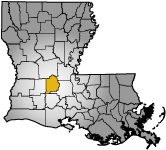SECTION: 703 LAWFUL, ARREST, PROBABLE CAUSE
SECTION: 703
TITLE: LAWFUL ARREST, PROBABLE CAUSE
SEARCH AND SEIZURE, and RESTRAINTS
EFFECTIVE DATE: February 15, 2017
This policy establishes procedure for lawful arrest, probable cause arrest, and search and seizure and detainment.
The Fourth (4th) Amendment of the US Constitution protects personal privacy, and every citizen's right to be free from unreasonable government intrusion into their persons, homes, businesses, and property whether through police stops of citizens on street, arrests, or searches of homes and businesses.
To place a person under and "Investigative Hold" is an illegal and unconstitutional practice. "Investigate hold" is when a person is arrested and held in jail without obtaining a warrant and without probable cause, and is detained with only the belief that person committed a crime. The "Investigative Hold" practice violates the Fourth Amendment to the United States, which guarantees the right to be free from unreasonable searches and seizures, including arrests. The Fourth Amendment prohibits "unreasonable searches and seizures" and requires that warrants be based on probable cause. All significant restraints must supported by probable cause, whether or not law enforcement officers call the restraint a formal arrest. At no time is the Evangeline Parish Sheriff's Office to use this practice (investigative hold) as a reason for detaining a person/suspect. These unconstitutional holds can lead to violations of a person's rights through questioning during criminal investigation and lead to coerced confessions and improper criminal convictions. These "Investigative holds" are to be eliminated. If this practice is found to have occurred the employee or employees responsible will be terminated.
IN CRIMINAL LAW:
"SEARCH AND SEIZURE" protections extend to:
- A law enforcement officer's physical apprehension or "seizure" of a person, by
way of a stop or arrest.
- Police searches of places and items in which an individual has a legitimate
Expectation of privacy his or her person, clothing, purse, luggage, vehicle, house, apartment, hotel room, and place a business, etc.
A safeguard have been established for individuals during searches and detentions, and prevents unlawfully seized items from being used as evidence in criminal cases. The degree of protection available in a case depends on the nature of the detention or arrest, characteristics of the place searched, and the circumstances under which the search took place.
IN LEGAL STANDARDS:
4th Amendment provides constitutional protection to individuals in but not limited to following situations:
- An individual is stopped for police questioning while walking down the street
- An individual is pulled over for a minor traffic infraction, and the police officer searches the vehicle's trunk.
- An individual is arrested.
- Police Officers enter an individual's house to place him or her under arrest.
- Police Officers enter an individual's apartment to search for evidence of crime.
- Police Officers enter a business pace to search for evidence of crime.
- Police Officers confiscate and individual's vehicle or personal property and place it under police control.
Law Enforcement's legal obligation is to protect the Fourth Amendment rights and a law enforcement officer may not search or seize an individual or his or her property unless the officer has:
- A valid search warrant
- A valid arrest warrant, or
- A belief rising to the level of "probable cause" that an individual has committed a crime.
When law enforcement officers violate an individual's constitutional rights under the Fourth Amendment, and a search or seizure is deemed unlawful, any evidence derived from that search or seizure will almost certainly be kept out of any criminal case against the person whose rights were violated.
FOR EXAMPLE:
- An arrest is found to violate the Fourth Amendment because it was not
supported by probable cause or a valid warrant. Any evidence obtained through that unlawful arrest, such as a confession, will be kept out of the case.
- A police search of a home is conducted in violation of the homeowner's Fourth
Amendment right because no search warrant was issued and no special circumstances justified the search. Any evidence obtained as a result of that search cannot be used against the homeowner in a criminal case.



